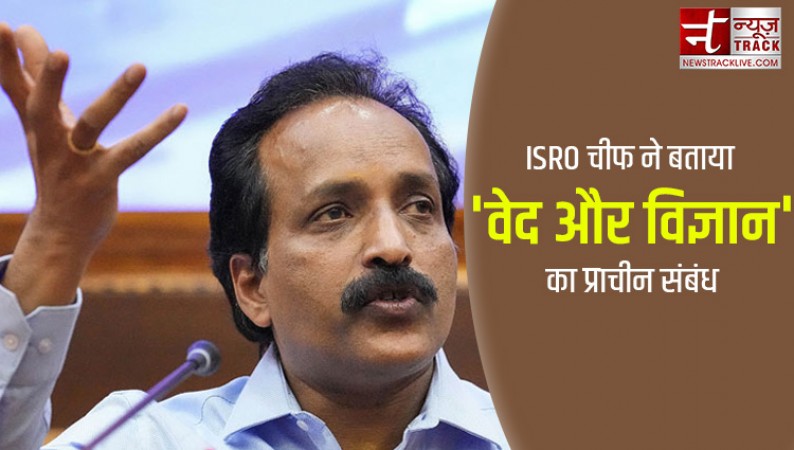
Ujjain: Indian Space Research Organisation (ISRO) Chief S. Somnath has made a very important statement about the world's oldest religious book Vedas and Sanskrit, one of the oldest languages. "Scientific concepts like algebra, square root, concept of time, architecture, structure of the universe, metallurgy and even aviation were first found in the Vedas."
Knowledge from India reached Europe and then came as Modern Science:
According to media reports, ISRO Chairman Somnath Maharishi Panini came to Ujjain in Madhya Pradesh to address the students of Sanskrit and Vedic University to address their convocation, during which he said that these Indian discoveries reached Europe through Arab countries and from there this knowledge was presented to us as modern science. ISRO chief S Somnath said that this happened because Sanskrit used to be an oral language at that time and later people started using Devanagari script for it. Somnath said it is believed that Maharishi Panini had written down the rules of Sanskrit grammar and the syntax and structure of the language made it ideal for "manifesting scientific ideas and procedures".
Astronomy, medicine and aeronautical sciences written in Sanskrit only:
Talking about the suitability of Sanskrit for Artificial Intelligence (AI) and writing other types of code, he said, "Engineers and scientists love Sanskrit very much. Sanskrit suits the language of the computer well and artificial intelligence learners also learn it. There is a lot of research going on on how Sanskrit can be used for calculations." The ISRO chief further said that Sanskrit has many other benefits and these are beyond science. "Indian literature written in Sanskrit is very rich in its original and philosophical form. It is also very important from a scientific point of view. There is no difference of cultural, spiritual and scientific study in Sanskrit. He said the imprint of the contribution of scientists in Sanskrit can be clearly seen in the journey of Indian culture for thousands of years. "The findings in astronomy, medical science, physics, chemistry and aeronautical science were written in Sanskrit but they were not fully researched."
Many mysteries of the solar system in the 8th century book Sun Theory:
The ISRO chief also cited the example of Surya Siddhanta, an ancient Indian book on astronomy, which is believed to be a collection of the 6th century. "This book specifically deals with the solar system, how all the planets revolve around the sun, its duration of motion, time related to events, etc. We had all this knowledge since the 6th century. As a rocket scientist, I was impressed by this book in Sanskrit, which opens up many mysteries regarding the solar system, time-scale and the size and circumference of the Earth."
Asia Cup 2023: BCCI announced Team India, know when will India-Pak clash
Indian American Ajay Banga takes over as World Bank President
Allan Border yelled at Steve Smith before the WTC final, telling him not to be so good